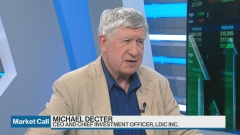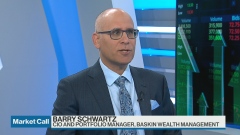Jun 22, 2023
Yellen Sees Lower US Recession Risk, Says Consumer Slowdown Needed
, Bloomberg News
(Bloomberg) -- Treasury Secretary Janet Yellen sees diminishing risk for the US to fall into recession, and suggested that a slowdown in consumer spending may be the price to pay for finishing the campaign to contain inflation.
On the chance of a recession, Yellen said “my odds of it, if anything, have gone down — because look at the resilience of the labor market, and inflation is coming down.” She spoke in an interview with Bloomberg News Thursday.
“I’m not going to say it’s not a risk, because the Fed is tightening policy,” she said, alluding to the Federal Reserve’s 10 interest-rate hikes since March 2022, with potentially more to come.
Her remarks contrasted with rising recession concerns across the Atlantic. Economic activity almost stalled in the euro area, based on data compiled by S&P Global published Friday. The reports sent global stocks down, while bonds surged as investors fled to safety amid heightened anxiety that aggressive central bank policy will tip economies there into a downturn.
In the US, business activity expanded in early June at the slowest pace in three months, held back by a deeper contraction at factories.
So far the US economy has proven resilient. A May employment report showed job gains beating all economists’ forecasts. Home construction and retail sales for last month have also shown surprising resilience in the face of the Fed’s aggressive monetary tightening.
Read More: US Economy Seen Skirting Recession But With Sticky Inflation
Spending Slowdown
“We probably need to see some slowdown in spending in order to get inflation” under control, Yellen said in reference to consumption. The core measure of price increases, which strips out food and energy, “is quite high,” she said.
Last week’s consumer price index release showed that the core inflation rate for May rose 5.3% from 12 months earlier. Last year’s surge in housing costs, which is only incorporated into the CPI with a delay, was to blame for some of that increase.
The headline CPI rate was 4% for May, well down from the peak of 9.1% reached in June last year.
“Inflation has really come down a lot — and there’s more in the pipeline,” Yellen predicted, partly due to an expected adjustment in the housing market.
The 2% Debate
As for a debate among some economists about whether the Fed ought to raise its inflation target from the 2% rate that was adopted during a time of weak growth and investment, Yellen indicated that such a discussion isn’t appropriate at a time when policymakers are battling to contain a price surge.
“We could have lovely debate for what the inflation target would be,” Yellen said. “But this is not the time for that debate.”
Fed Chair Jerome Powell has rejected the idea of entertaining a change to the 2% target — sentiment he reiterated before Congress this week.
Yellen was speaking in Paris on the sidelines of a summit organized by French President Emmanuel Macron on reforming global development-lending architecture — an issue that’s been a priority for the US administration.
China’s Challenges
The venue will provide the opportunity of Yellen interacting with Chinese Premier Li Qiang, who is also attending the event, amid fresh strains between Washington and Beijing over President Joe Biden’s characterization of President Xi Jinping as a “dictator.”
Read More: Biden Says Dictator Remark About Xi Hasn’t Undermined Ties
Yellen said China was being “more constructive” with regard to a long-standing push for debt relief for Zambia, to which Beijing is the top official creditor.
During the Paris summit, Zambia reached an agreement in principle to restructure its debt with bilateral lenders, setting a precedent for countries struggling to service their liabilities.
The accord, which Yellen had pushed for over the past six months, marks the first major relief won by a developing country under the Group of 20’s Common Framework that brings the traditional creditor nations of the Paris Club around the same negotiating table with China and India.
Read More: Zambia Wins Debt Relief, Sets Precedent for Stressed Nations
Yellen suggested that China’s recent engagement on the Zambian debt-relief efforts could be part of a broader initiative by Beijing to improve its image in the international community at a time of considerable domestic economic risks.
Chinese authorities have in recent weeks cut interest rates and adopted measures to shore up the property market, which has suffered from an overhang of leverage and construction. Policymakers are also increasingly concerned about demographic issues including a declining population and a high youth unemployment rate.
Measures taken against some private-sector companies in recent years have also raised questions about Beijing’s commitment to continuously opening up its economy. Yellen said Chinese authorities are concerned that actions they’ve taken have made foreign investors cautious, or raised doubts about their wanting to invest in China.
“They’ve got some economic challenges and I think they want to make sure that they maintain a climate for foreign investment that is positive,” Yellen said. “They have both medium-term problems and also short-term problems.”
--With assistance from Christopher Condon.
(Adds with US economic activity data in the fifth paragraph.)
©2023 Bloomberg L.P.





